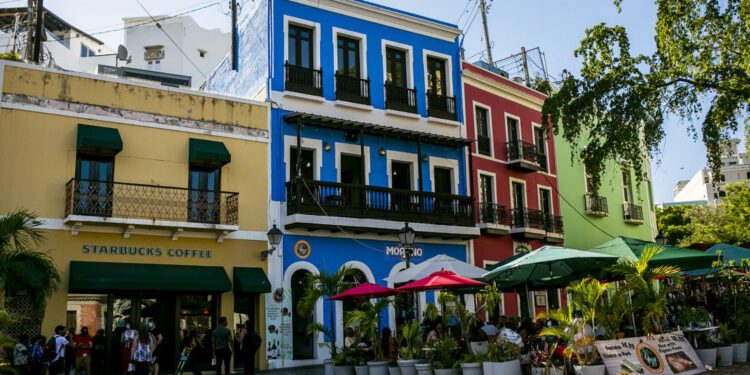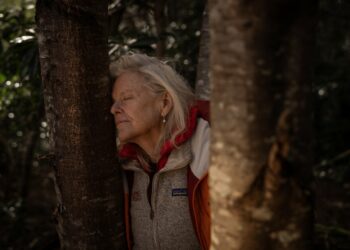A street in Old San Juan, Puerto Rico.
A new study is shedding light on the financial challenges people in Puerto Rico face as a result of the economic turmoil they have endured since the Great Recession.
Findings from the National Financial Capability Study published in a report Thursday show that many adults in the U.S. territory struggle to make ends meet despite reporting relatively low levels of debt. This is particularly true among those who are younger, have lower household incomes and lack a four-year college degree.
Wealth building and financial planning are also sparse, with few Puerto Rican adults reporting they have emergency savings or own investment accounts, according to the report.
The report was co-authored by Harold J. Toro, research director at the Center for a New Economy, a Puerto Rico-based nonpartisan think tank, and Olivia Valdés, a senior researcher at the Financial Industry Regulatory Authority’s Investor Education Foundation.
Key findings:About half of Puerto Rican adults surveyed (47%) reported being financially fragile, compared to 30% in the mainland U.S.
This means they lacked confidence in their ability to handle an unexpected expense of $2,000, compared to a third of adults in the mainland U.S.
Puerto Ricans ages 18 to 29, those who identified as female, had an annual income below $25,000 or who didn’t graduate from college were more likely to report financial insecurity and drops in income.
Many struggle with managing daily expenses as 39% of Puerto Ricans surveyed said they spend more than their monthly income, a rate that’s more than twice as high as that in the States (19%).
Financial fragility rates were lower among those who expected or had received intergenerational wealth transfers of at least $10,000.
Fewer debts, but less savings and retirement accounts
Only 12% of Puerto Ricans reported having student debt, a lower percentage than in the U.S. mainland, where 23% of adults carry student loans. This can, in part, be attributed to substantially lower college costs in Puerto Rico.
About 1 in 10 survey respondents reported having unpaid medical bills or debt; much lower than in the U.S. mainland, where 22% of adults report having medical debt.
Forty-one percent reported having emergency savings, compared to 53% of adults in the States.
Thirty-five percent of adults in Puerto Rico report owning an employer-based or independent retirement account, substantially lower than in the U.S. mainland, where 57% of adults say they own one.
How it all started
The authors concluded their findings are generally consistent with “well-known characteristics” of the Puerto Rican economy, such as limited job opportunities, stagnant wages and income disparities.
All of these exist since the Great Recession of the late 2000’s and persisted during Puerto Rico’s subsequent financial crisis. In 2014, Puerto Rico’s general obligation bonds were downgraded to noninvestment status and the local government defaulted on its debt payments a year later, after accumulating more than $120 billion in public debt and unfunded pension liabilities.
Since then, Puerto Rico has operated under a federally imposed oversight board managing the largest public debt restructuring in U.S. history — resulting in tough austerity measures that prompted layoffs of public workers and cuts to the health care and education budgets.
This, compounded with a string of devastating natural disasters that include 2017’s Hurricane Maria, a series of earthquakes in 2020 and the pandemic, has meant that economic hardship has persisted for Puerto Ricans in the U.S. territory — forcing more than 700,000 people to migrate to the States over the past 15 years.
The National Financial Capability Study is a survey conducted every three years that was created in 2009 by the FINRA Investor Education Foundation, a not-for-profit organization dedicated to investor protection. It’s widely used in the U.S. to better understand how economic circumstances influence individual financial behaviors.
As part of the study, close to 1,000 Puerto Rican ages 18 and over who live on the island were bilingually surveyed in 2021. This marked the first time that the FINRA foundation included Puerto Rico in its triennial study.
Gerri Walsh, president of the FINRA foundation, said in a statement that “lack of information on Puerto Rican households’ financial capability amid the challenging economic events” served as motivation to expand their study to include the U.S. territory.
Source link : http://www.bing.com/news/apiclick.aspx?ref=FexRss&aid=&tid=66dee04545fa403889fd5d010d733d96&url=https%3A%2F%2Fwww.aol.com%2Fnews%2Fnearly-half-puerto-rican-adults-090100479.html&c=17639762897005040123&mkt=en-us
Author :
Publish date : 2024-09-05 01:02:00
Copyright for syndicated content belongs to the linked Source.








